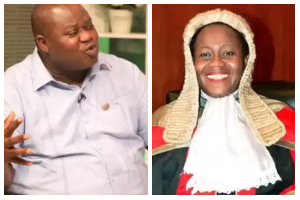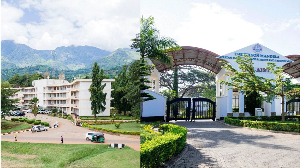S. Kwaku Asare
Only Presidential candidates who have a reasonable possible chance of winning an impending general election should be entitled to participate in a national Presidential debate. Although this concept is universally acknowledged, jurisdictions differ in how it is operationalized. For instance, the USA Commission on Presidential Debates invites to its debates only those candidates who have a level of support of at least 15% of the national electorate as determined by the average of 5 selected national public opinion polling organizations.
Reliable polling is largely unavailable in Ghana so a criterion based on polling is unreasonable. In 2012, the Institute of Economic Affairs organized the Presidential debate and invited any Presidential candidate whose party held at least 1 seat in Parliament. This criterion has, at least, two problems. First, it is too low of a threshold and gives marginal candidates a national platform that they do not deserve. A party that has only 1 seat in Parliament does not meet the definition of a national party. Second, it eliminates all independent candidates and could potentially exclude a viable prospect.
In the 2012 debate, candidates of the CPP and PNC were invited to take part in the debate, based on the 1-seat criterion. In the ensuing general elections, the CPP and PNC candidates obtained 20,323 (0.18%) and 24,617 (0.22%) votes out of the 11,000,000 votes cast. To put this in perspective, consider that invalid votes (251,270) exceeded the sum of the votes obtained by these two candidates. In fact, invalid votes exceeded the sum of votes obtained by the CPP and PNC candidates as well as the GCPP (38,223), PPP (64,362), UFP (8877) and the Independent (15,201) candidates. It is also worth noting that the votes of the PPP candidate (.59%), who was excluded from the 2012 debates, exceeded the combined votes of the CPP and PNC candidates.
The low performance of the PNC and CPP candidates evidences that it was a mistake for these candidates to have been invited to the debate. In turn, it suggests that new criteria are needed for inviting Presidential candidates to take part in national debates. I suggest a candidate should be invited if he leads a party that holds at least 5% of seats in Parliament. With respect to an Independent candidate, the threshold should be if she is able to garner the signatures of at least 5% of registered voters.
It is important to note that this is not a call for capping the number of Presidential candidates. All qualified candidates should be allowed to run. All I am saying here is that candidates must prove that they are serious candidates for the nation to take them seriously enough to put them on an equal footing with the incumbent President (where there is one in the debate) and the Person or Persons (where the incumbent is not involved in the debate) who are most likely to replace the incumbent.
In my opinion, it was a mistake in 2012 to have allowed the CPP and PNC candidates to partake in the national debate. More important, we must not repeat this mistake in 2016.
Indeed, why can't an MP introduce a Private Member Bill on Presidential Debates, which defines the who, how, how often, moderators, where, etc. of such debates? The IEA organized the 2012 debate. But why can’t it be the highly respected Somanya based Azar News Network (ANN) in 2016?
Opinions of Wednesday, 8 October 2014
Columnist: Asare, Kwaku S.















